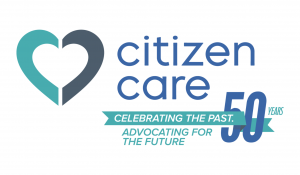Life Sharing / Rare Disease Spotlight: Maliq
Rapid-onset Obesity with Hypothalamic Dysfunction, Hypoventilation, and Autonomic Dysregulation (ROHHAD)
Seven-year-old Maliq is supported through Citizen Care’s Life Sharing program for children with medically complex conditions. He was diagnosed with Rapid-onset obesity with hypothalamic dysfunction, hypoventilation, and autonomic dysregulation (ROHHAD) at 3.5 years old. His mom and Life Sharing Partner, Thando, said Maliq was a “skinny little dude” and he started gaining weight and eating everything in sight which is what led to his ROHHAD diagnosis. Thando went on to add, “Most kids don’t get the right diagnosis with this syndrome and most medical personnel don’t understand it.” He was admitted to UPMC Children’s Hospital at the age of 5 to treat other medical issues common with ROHHAD. In Maliq’s case, ROHHAD impacts his cardiovascular, endocrine, integumentary, respiratory, and urinary systems. Maliq and Thando celebrated his return home at the end of January after spending two years at Children’s.
Care’s Life Sharing program for children with medically complex conditions. He was diagnosed with Rapid-onset obesity with hypothalamic dysfunction, hypoventilation, and autonomic dysregulation (ROHHAD) at 3.5 years old. His mom and Life Sharing Partner, Thando, said Maliq was a “skinny little dude” and he started gaining weight and eating everything in sight which is what led to his ROHHAD diagnosis. Thando went on to add, “Most kids don’t get the right diagnosis with this syndrome and most medical personnel don’t understand it.” He was admitted to UPMC Children’s Hospital at the age of 5 to treat other medical issues common with ROHHAD. In Maliq’s case, ROHHAD impacts his cardiovascular, endocrine, integumentary, respiratory, and urinary systems. Maliq and Thando celebrated his return home at the end of January after spending two years at Children’s.
The benefit of Maliq’s participation in our Life Sharing program is that he was able to return home after being hospitalized for two years. Because of the home health nursing shortage, parents often can’t work because they must be home when a nurse calls off to take care of their child. This program pays a stipend to his mother, allowing her to be at home to care for Maliq.
ROHHAD is an ultra-rare disorder that was first described in 1965 and renamed ROHHAD in 2007. Since 1965, at least 200 children have been reported in clinical literature or identified with the disorder. Because of the high prevalence of cardiorespiratory arrest, early recognition and treatment of the symptoms associated with ROHHAD are essential and may be lifesaving. No specific cause for ROHHAD has been found to date. ROHHAD is classified as an ‘orphan disease’ (typically defined as affecting fewer than 1-in-2000 people), which means that governments and pharmaceutical companies don’t allocate any research budget to finding treatments or a cure for ROHHAD.
Citizen Care Life Sharing program
Citizen Care Medically Complex Conditions Life Sharing program
